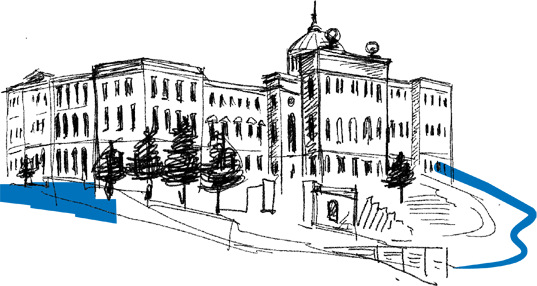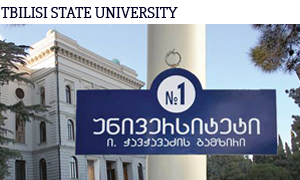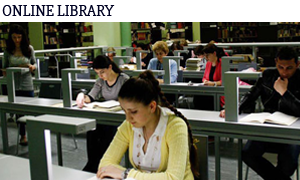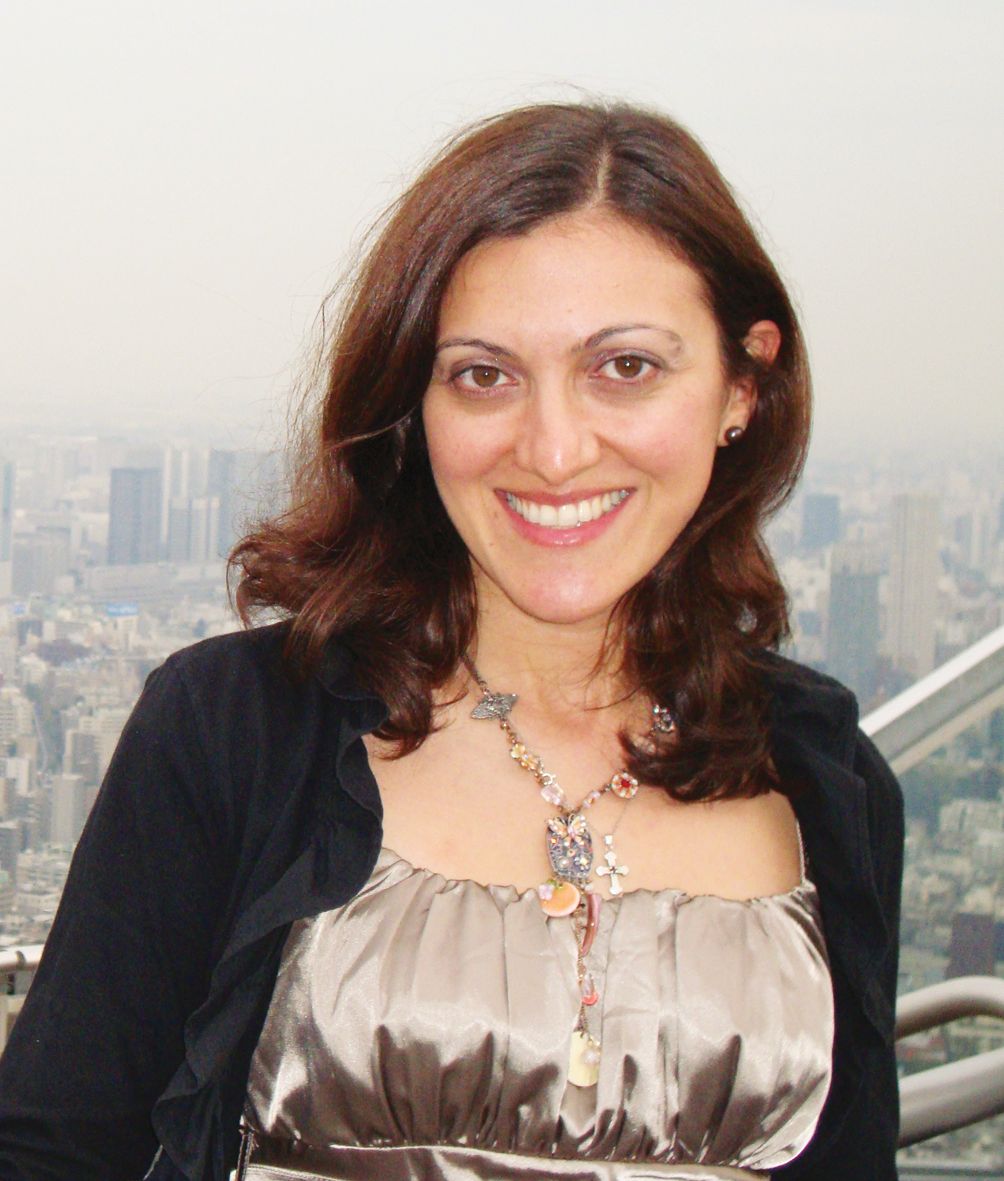
FACULTY OF SOCIAL AND POLITICAL SCIENCES
Social Media Development Trends in Georgia
The 21st century has seen new media developing rapidly, including blogs, social networks, online encyclopedias, various forums and many other Internet resources that imply maximum involvement and interaction between users. Social media research is new in Georgia and TSU scientists have begun a project through support of the Academic Swiss Caucasus Net (ASCN). This is the largest project prepared on this topic in Georgia, which discusses almost all the aspects of social media development.
What are the main trends in social media in Georgia and how do they influence public life? These are issues discussed in the project ‘Social Media Development Trends in Georgia: Power of the Real Virtual?’ that unites three studies – a legal analysis, ‘Social Media in Georgia and Neighboring Countries (Armenia, Azerbaijan and Russia)’; as well as ‘Qualitative Research on Social Media Development Trends in Georgia’ and ‘Quantitative Research on Social Media Development Trends in Georgia’. The two-year research project was implemented in 2011-2013 at the TSU Faculty of Social and Political Sciences under the guidance of Professor Lika Tsuladze, Doctor of Sociology. Other scientists were involved Amiran Berdzenishvili, PhD; Sociologist Flora Esebua, PhD; and MA graduates in Sociology Irakli Kakhidze, Nana Macharadze and Ana Kvintradze, as well as Davit Kldiashvili, a lawyer.


At the beginning of 2009, only 43% of Internet users in Georgia used social networks, while a year later the numbers grew to 68%, raising questions about the kinds of reception and dissemination of information through social media being used, the accumulation of social capital, how platforms for civic activity were being created and what influence the networks have. The study also covered the interrelations between politics and social media, censorship and self-censorship, protection of personal information and bloggers’ rights, the influence of social media on personality traits and social relations, as well as on Georgian users’ national identity.
In November 2012, the quantitative research on Social Media Development Trends in Georgia was conducted with internet users nationwide in seven large cities of Georgia – Tbilisi, Kutaisi, Batumi, Zugdidi, Rustavi, Gori and Telavi. It ascertained that overall role of social networks increased substantially over the two years, especially in view to sustain contacts, rather than to establish new relations. For example, Facebook was mainly used to maintain relations with people the users already knew.
The findings showed that although a key motivation for using social networks is to strengthen social relations (71.5%) another goal was to obtain new information (37.7%). Female respondents use the Internet for the news and for educational information more frequently than male respondents. Males use social networks for entertainment more frequently than females. Generally, entertainment is a key motivation for Internet use in Georgia, confirmed by the fact that although most respondents do not engage in social blogs, a small proportion of blog readers limit themselves to entertainment blogs, and the blogs oriented towards gender issues had the least number of readers.
Georgian users are little involved in civic activities through social media. Moreover, 50.3% of respondents find it absolutely unacceptable to participate in civic activities through Internet, which indicates an underdeveloped culture of civic activism in Georgia. Only 20% of respondents had participated in a political rally through the Internet, which strengthens the assumption that social media is not yet a platform for political activity in Georgia. Youth aged 18-22, mostly students, have more frequently engaged in civic activities than other groups. Indeed the most active Internet users are 18-22- year-old students, who cite retrieval of academic information as their main reason for using the Internet.
 Of the 46.4% of scientists who use the internet to find academic materials, the majority are female. Social media in Georgia does very little to disseminate educational information, but is more focused on “infotainment”. However it is becoming a new platform for sharing religious beliefs, shifting religion from a mainly private to the public sphere. The research looked at whether sharing prayers, icons and religious topics online is acceptable for our respondents, and found that proponents and opponents are evenly distributed, indicating society’s polarization over this issue. A majority of respondents believe that social media has a significant influence on the values and identity of Georgian society, including Georgia-specific features, traditional relations, political activity or interethnic relations. Some respondents believe that the influence of social media on Georgians’ gender perceptions is important.
Of the 46.4% of scientists who use the internet to find academic materials, the majority are female. Social media in Georgia does very little to disseminate educational information, but is more focused on “infotainment”. However it is becoming a new platform for sharing religious beliefs, shifting religion from a mainly private to the public sphere. The research looked at whether sharing prayers, icons and religious topics online is acceptable for our respondents, and found that proponents and opponents are evenly distributed, indicating society’s polarization over this issue. A majority of respondents believe that social media has a significant influence on the values and identity of Georgian society, including Georgia-specific features, traditional relations, political activity or interethnic relations. Some respondents believe that the influence of social media on Georgians’ gender perceptions is important.
More than half of the respondents believe that Georgians’ attitudes towards other ethnicities in general has grown more tolerant because of social media, however this seems to apply less to ethnic minorities. On the other hand, the majority of respondents believe social media poses a threat to Georgia’s identity since the new global media weakens national identity and traditional relations between Georgians become colder and more aloof. Most respondents subscribe to the point of view that due to the values that infiltrate through the social media, Georgians have become driven by personal rather than social interests. Nevertheless, a third of respondents deny any such influences on Georgian aspirations for well-being, traditional relations or national identity.
The authors discuss both advantages and disadvantages of social media development. One of its central features is that individuals can self-actualize far more easily and successfully. They have an open playing field where they can popularize their own ideas and present themselves in a favorable light. Another essential positive aspect is that the new media can resist the monopolistic ownership of the communication facilities by the political elite and foster high citizen engagement in democratic processes. Yet social media is accessible to fewer users than traditional media is, due to low online engagement levels and a lack of necessary media skills. This echoes what researchers worldwide refer to as digital inequality, or the “digital divide”. Another issue is that of private vs. public spheres. Safeguarding information that users do not want to make public is an important issue, which becomes even more relevant in cases of political information. Manipulation of this information could lead to self-censorship and a “managed democracy”.
A growing feature of social media, the obliteration of demarcation lines between the virtual and the real, means that Internet users today who are involved in a virtual life may find both daily life and virtual life equally real. There is a risk that social--especially civic cyber activities--might not transcend the online boundaries to actualize offline.
Qualitative research based on the in-depth interviews with media-experts in Georgia showed that despite creating a favorable environment for self-actualization and self-assertion, social media in Georgia cannot be considered influential. There are three reasons for this--first is the limited internet access, which is mainly found in the capital and larger towns; the second is age, as youth are the main users in Georgia; and third is the compartmentalization effect, or a certain “cyber-sect” that affects limited segments of the population, but not the public at large.
Despite these caveats, the influence of social media--especially on culture and public life--is obvious. Media experts believe it is an attempt to keep abreast of world developments. Georgian businesses already show a keen interest in social media for marketing. Although social media is still low key in the field of politics and political developments, experts believe its influence will grow in future to resonate with the social media development tendencies in the world.
One explanation for the increasing influence of social media is that Georgian traditional media fails to provide the public with comprehensive and impartial information or to create a relevant platform for public discussions. Respondents stated that social media creates an avenue for discussion on topics that traditional media tries to avoid--like the religious, sexual or ethnic minority issues in Georgia. Some respondents say social media is the only kind that offers a discussion format to the public at large, promoting their engagement in ongoing political processes by finding like-minded people and planning joint activities without any need to leave home.
The legal analyst of the project noted that there is no special legislation in Georgia on social media, so it is regulated by general laws on media, which is more liberal compared to neighboring countries (Armenia, Azerbaijan and Russia). Social media in these more authoritative regimes--according to Freedom House data as well--is more restricted than in Georgia.
However, based on 40 in-depth interviews with a group of experts in spring, 2012 a number of censorship cases have also been identified in Georgian social media. These experts openly discussed three censorship types: the first concerns the government authorities pressuring their employees to become politically active in the social media; the second is imposed by editorial boards on their staff, though the websites of online magazines explicitly refer to free editorial policy; the third type is pressure from the government on bloggers, which may take the form of indirect or “mild” control, but is still censorship as such. Hence, an attempt to coax bloggers can be considered a type of censorship, for example when bloggers are coaxed to refrain from writing critical posts, so as not to put themselves in an awkward situation, or because it is “merely for some personal gain”. According to the authors of the research, such cases have strengthened self-censorship on the part of bloggers. Media experts who blog frequently--or who are employees of certain media outlets--quoted numerous such examples.
Moreover, the research has shown that neither bloggers’ rights nor users’ personal information is protected in the Georgian social media-space, and this cannot be attributed merely to user negligence. There are specific examples as to how private correspondence was made public, accounts were broken, IP addresses were misappropriated, etc. The authors conclude that there is an impression that there were covert political interests with respect to non-political content that prompted certain stakeholders or groups to obtain users’ personal information and control bloggers’ activities.
The research thus showed that even the comparatively free Georgian social media has fallen under indirect censorship. As far as the possibility of controlling new media is concerned, the authors note that governments cannot be held solely responsible for protecting legal and ethical norms online. Each person who creates or uses the social media must also ensure that these norms are upheld. Otherwise the state, as a repression machine, can argue that social networks are in a state of disarray, and use the lack of accountability to exert control over the Internet. Hence, the control will go into the hands of government, rather than remain “social” media, the latter being the case in Western democracies and known as ‘mediocracy’.




